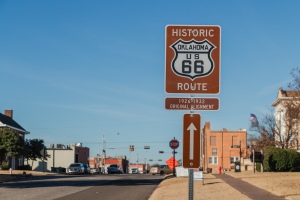Passion for God – Larry Crabb Challenges Christians to Deeper Faith
LOUISVILLE, Ky. – The church’s success in making disciples ultimately will depend on its ability to relate to truths about sin, brokenness and mercy to deeply personal human longings, said psychologist Larry Crabb at the Gheens Center Family Conference, March 19. The renowned author challenged the students gathered at the Southern Baptist Theological Seminary to extend beyond mere doctrinal orthodoxy to passionate faith.
"I believe that the core problem in the human soul is ultimately spiritual, and the ultimate problem is sin for which we're culpable. And I believe in an ultimate truth that we neglect to our peril," said Crabb, who is the author of such books as "Shattered Dreams," and "The Silence of Adam."
"But we haven't done, in my judgment, a very good job of speaking from those convictions with a discernment that allows us to move into the deeper realities of the soul."
Crabb cited three central concepts to bear in mind during the spiritual journey.
First, we are passionate people. "Obedience must not be reduced to mere behavioral conformity," he said, "but obedience must become an expression of our deepest passions."
God's commandments are not limitations on freedom, but rather opportunities for obedience, Crabb said, noting that the opportunity to obey God should ignite a passion within followers of Christ.
"Maybe you need to understand the spiritual journey as a journey of passion, a journey of desire because we're created in the image of a community of three very passionate persons."
Second, we are culpably misdirected in our passion. Understanding the Christian life merely in terms of behavioral conformity is closely related to a shallow understanding of sin, Crabb noted.
"We also, in my judgment, haven't thought deeply enough about sin," he said. "We've made the great mistake that sin has a whole lot more to do with a violation of external standards than something that happens in your deep interior world.
"Most of us think of the way we sin as going 27 mph in a 20 mph speed zone. We don't have an understanding of sin that goes so deep to realize we've been going 200 mph in a school zone. We even killed a bunch of little children in the process and that God in His justice and righteousness has every right to punish us eternally and that every minute depends entirely on His sovereign mercy."
According to Crabb, understanding the extent of God’s pardon with a proper concept of sin, will lead believers to serve the Lord passionately in thanks for His forgiveness.
Thirdly, we are isolated people. Another cause of failure in the spiritual journey, Crabb said, is trying to live it alone. But as beings created in the image of the Trinity, believers fundamentally have a need for community, he said.
"If the church experience means no more to you than sitting in a congregation facing forward, hearing your pastor, singing the hymns and leaving, you're an individualist. You're not part of community," he said.
"And if you're not part of community in the way that God intends for us to be a part of community, you're denying ultimate reality that God is a Trinitarian community himself and we bear the image of a community. I wonder if we've thought deeply enough about the spiritual journey in terms of walking together."
In the final analysis, Crabb observed that our sin and our isolation would drive Christians to realize that the spiritual journey is about attachment to God, not our comfort. Life may involve suffering, but that suffering kindles our passions and drives us to God, he said.
"Suffering is a privilege," he said. "And I don't see how we're going to be released in our passions to know God and be delivered from our self-centeredness and be delivered into deep community without very deep and meaningful suffering -- suffering that takes away all of our sources of joy so all we have left is God.
"I'm committed to building -- as best I can -- a clearly evangelical basis for spiritual direction and to probe the mystery of the human soul, to understand our capacity for the passion and enjoyment of God, to understand sin as our treasonous pursuit of joy from some other source than God, and to understand what Trinitarian-like community really is so we can join each other on the journey."
By Pauline J.



























